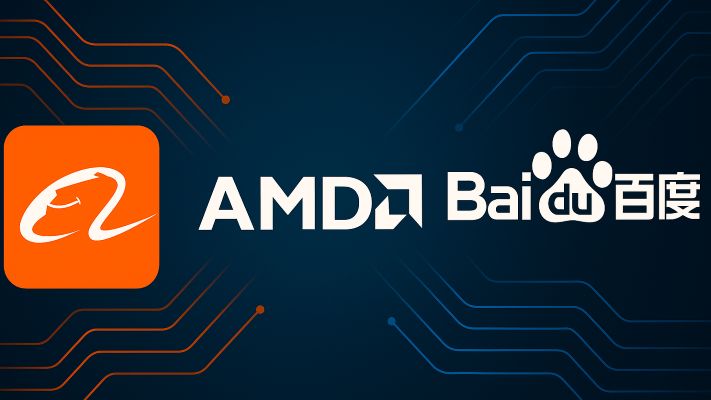AI Navigation
- articleAI Trends
- lightbulb_2AI Tips
- assistant_navigationAI Navigation
- heatHot Articles
- emergency_heat_2Hot Tips
- format_list_numberedPrompt Formatter
- psychologyTest Center(RPI)
November 12, 2025 · 24-Hour AI Briefing: Alibaba’s Qwen Powers Double 11, AMD Expands into Autonomous Vision, and Baidu Drives Robo-Taxis to Abu Dhabi
Summary:
AI is no longer confined to labs — it’s powering real-world business at scale. Alibaba’s Qwen model just fueled China’s biggest e-commerce event, AMD is entering the next frontier of automotive AI, and Baidu’s driverless fleet is heading for the Gulf.
The global AI race is shifting from experimentation to execution.

Alibaba’s Qwen Model Powers 2025 Double 11, Marking Its Full Commercial Rollout
Alibaba announced that its Qwen (Tongyi Qianwen) model powered this year’s Double 11 shopping festival for the first time, delivering over ten million CPU cores of computing power to support merchant operations and consumer-facing AI applications.
Commentary:
Qwen’s participation marks a major milestone in Alibaba’s AI roadmap — a shift from technical reserve to large-scale commercial deployment.
Through innovations such as its self-developed CIPU architecture and HPN 7.0 network, Alibaba improved performance in core business processes (recommendations, checkout, etc.) by 30–50%, while reducing latency by over 30%.
Meanwhile, the Qwen-MT multilingual translation model hit over 1.4 billion daily calls, supporting cross-border e-commerce across hundreds of millions of products.
In short, Alibaba has proven that AI at scale is not just about innovation — it’s about measurable business transformation.
AMD Partners with STRADVISION to Enhance Autonomous Driving Vision
AI perception company STRADVISION announced a multi-year partnership with AMD to integrate its MultiVision software with AMD’s Versal AI Edge platform — aiming to enhance the safety and efficiency of autonomous driving perception systems.
Commentary:
AMD is expanding its AI strategy into automotive edge computing, positioning itself as a differentiated alternative to NVIDIA’s DRIVE platform.
This partnership leverages joint “algorithm + chip” optimization, improving detection and segmentation precision while significantly lowering latency and power consumption — crucial for constrained in-vehicle systems.
If AMD and STRADVISION can maintain balance among performance, cost, and ecosystem maturity, their approach could become the mainstream perception stack for next-generation L2+/L3 autonomous systems.
Baidu’s Apollo Go Expands to Abu Dhabi with the K2 Group
Baidu’s autonomous mobility service Apollo Go (萝卜快跑) announced an expanded partnership with the K2 Group’s UAE-based subsidiary AutoGo, with plans to deploy hundreds of driverless vehicles in Abu Dhabi by 2026 — building the city’s largest fully autonomous taxi fleet.
Commentary:
The partnership marks a milestone in the global expansion of China’s autonomous driving technology.
Abu Dhabi, as a regional hub of capital and innovation, maintains strict standards for safety, reliability, and technological maturity — and Baidu’s entry demonstrates the global competitiveness of Chinese AI systems.
This represents a dual “technology + business model” export, with Baidu using local data and collaboration to build an internationalized autonomous ecosystem — competing directly with Waymo, Cruise, and Tesla in the global market.
For more AI news, market insights, and frontier tech updates, visit:
https://iaiseek.com/en
Want to catch up on the past 72 hours of AI developments? Read:
November 11, 2025 · 24-Hour AI Briefing: Intel’s CTO Joins OpenAI, Apple’s M5 Push, NVIDIA Powers Germany’s AI Center, and SK Hynix Redefines Memory